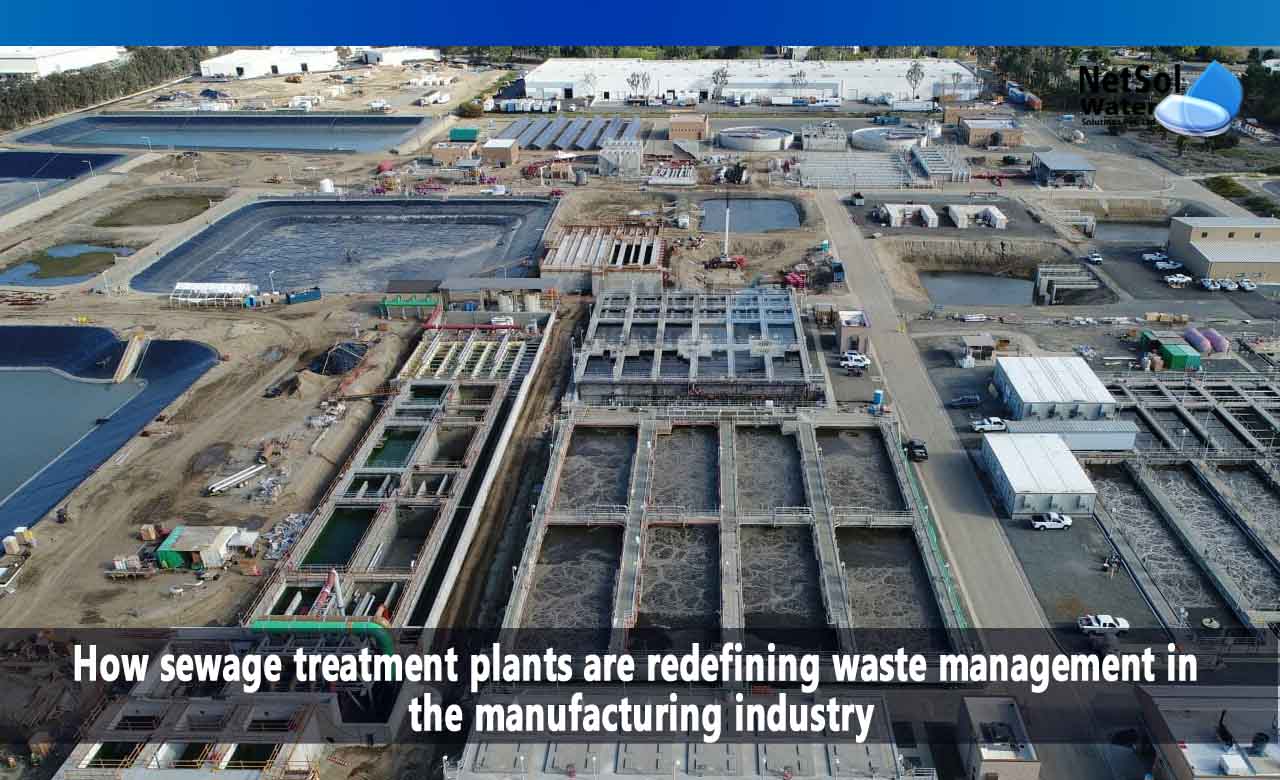STP Plants: Redefining Waste Management in the Manufacturing Industry
Waste management is a critical aspect of sustainability for the manufacturing industry. In recent years, sewage treatment plants have emerged as key players in redefining waste management practices. These plants not only effectively treat industrial wastewater but also offer opportunities for resource recovery and environmental conservation.
In this blog, we will explore how sewage treatment plants are redefining waste management in the manufacturing industry, driving sustainable practices, and benefiting both businesses and the environment.
1- Efficient Treatment of Industrial Wastewater:
Sewage treatment plants are equipped with advanced technologies and processes that efficiently treat industrial wastewater. They are capable of removing a wide range of contaminants, including suspended solids, organic compounds, heavy metals, and pathogens. By treating wastewater before discharge, manufacturers ensure that the water released into the environment meets stringent regulatory standards. This not only protects ecosystems and human health but also helps manufacturers comply with environmental regulations and avoid potential penalties.
2- Resource Recovery and Recycling:
One of the significant advantages of sewage treatment plants is their potential for resource recovery and recycling. These plants enable the extraction of valuable resources from wastewater, transforming them into usable products. For example, organic matter can be converted into biogas, a renewable energy source that can be utilized within manufacturing processes or fed into the power grid. Additionally, nutrients like phosphorus and nitrogen can be recovered and used as fertilizers in agriculture. This resource recovery approach reduces the dependence on virgin resources, conserves natural reserves, and promotes a circular economy within the manufacturing industry.
3- Water Conservation and Reuse:
Sewage treatment plants also contribute to water conservation and reuse efforts in the manufacturing sector. By treating wastewater to remove contaminants, the treated water can be reused for various non-potable applications within the manufacturing facility. This includes processes such as cleaning, cooling systems, or irrigation. Reusing treated water not only reduces the demand for freshwater sources but also minimizes the overall water footprint of manufacturing operations. It is a sustainable practice that helps conserve water resources and supports the achievement of water stewardship goals.
4- Energy Generati?on and Cost Savings:
Sewage treatment plants have the potential to generate energy from wastewater. Advanced treatment processes, such as anaerobic digestion, convert organic waste into biogas, which can be used as a renewable energy source. Manufacturers can utilize this biogas for on-site electricity generation or heat production, reducing reliance on traditional energy sources and lowering operational costs. Energy self-sufficiency leads to significant cost savings, enhances the overall energy efficiency of manufacturing operations, and reduces the carbon footprint associated with energy consumption.
5- Environmental Stewardship and Corporate Social Responsibility:
By implementing sewage treatment plants, manufacturers demonstrate their commitment to environmental stewardship and corporate social responsibility. These plants showcase the proactive approach of businesses towards waste management, pollution prevention, and resource conservation. Such initiatives enhance the reputation of companies, strengthen stakeholder relationships, and attract environmentally conscious customers. By prioritizing sustainable waste management practices, manufacturers contribute to the overall well-being of the environment and communities where they operate.
Conclusion:
Sewage treatment plants are revolutionizing waste management in the manufacturing industry. With efficient treatment of industrial wastewater, resource recovery and recycling, water conservation and reuse, energy generation, and environmental stewardship, these plants are redefining the way manufacturers handle their waste streams. By adopting sewage treatment plants, manufacturers can achieve regulatory compliance, reduce environmental impact, conserve resources, and improve their bottom line through cost savings. As sustainable practices become increasingly important for businesses, sewage treatment plants will continue to play a vital role in redefining waste management and driving the manufacturing industry towards a more sustainable and responsible future.



